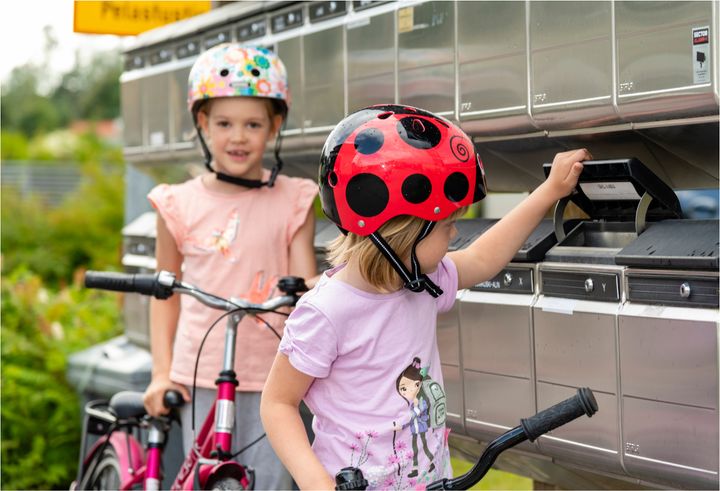Budget proposal for 2020: Espoo will guarantee basic services to its growing population

The number of residents continues to rise by 4,600–4,800 people per year. Over the next decade, Espoo’s demographics will change and the dependency ratio will deteriorate.
‘We can already see that an increase in population no longer equals an increase in tax revenue, which should be a cause for concern in all growth centres,’ says Mayor Jukka Mäkelä.
All the growth signs in Espoo are positive: a record number of housing units are being built, and business turnover and the level of staffing continue to rise. Last year, the turnover increased by 5.2% in all sectors, achieving a rise of up to 5.5% in Länsimetro’s development zone. Unemployment – including youth and long-term unemployment – is falling. At the end of June 2019, the employment rate was 8.4% in Espoo, i.e. 0.3 percentage points lower than the year before. The number of jobs is on a steady rise with an annual increase of approximately 1,100.
Despite the positive trend, the increase in the city’s tax revenue is slower than last year. Part of the reason are the system changes that also complicate the prediction of next year’s tax revenue. ‘It is unacceptable that municipalities are unable to make tax revenue forecasts. This year, the system changes will decrease Espoo’s tax revenue by as much as 70 million euros,’ says Mäkelä.
The budget proposal estimates that Espoo’s tax funding will grow by a total of 6.5% in 2020. The city’s net expenditure will increase by 4.5%. The annual contribution margin will be 177 million euros.
The city’s loan portfolio will grow by 210 million euros to 1.1 billion euros, while the loan portfolio of the entire Corporate Group of Espoo will grow by 480 million euros to 4.3 billion euros by the end of next year. The increase of the city’s debt will be reversed by the end of the council term.
‘The growing population and responding to the demand of new services will require considerable investments. The current system of central government transfers to local governments has become outdated, as it does not factor in the needs of growing cities. Between 2013 and 2020, Espoo will have lost a total of 1.4 billion euros to other municipalities due to transfer balancing on the basis of tax revenue, in addition to which we have become indebted,’ says Mäkelä.
Heavy investments in the Fix the Schools in Espoo initiative
The city will make investments of 335 million euros next year and a total of 3.1 billion euros by 2030. In addition to the Fix the Schools in Espoo initiative, these investments will go towards the Jokeri light rail, the metro development zone, the development of the district centres and their service facilities and offices, and the transport network and public transport projects needed for the development of the urban structure.
Schools and daycare centres will be guaranteed healthy and well-functioning facilities with the Fix the Schools in Espoo initiative, in which the city and its real estate companies will build and renovate school and daycare buildings by making investments and utilising rent, leasing and special purpose company models, spending over 940 million euros over the next 11 years. New ways of planning and completing projects will be implemented in the facility projects and the School as a Service model will be utilised for calculating the projects’ overall costs.
The Corporate Group of Espoo’s investment programme will grow in 2020, due in particular to the increase in the city’s and the Länsimetro’s 2nd phase investments, as well as the growth in housing unit production by Espoon Asunnot. In 2020, the overall investments made by the Corporate Group of Espoo amounted to roughly 860 million euros, whilst during the term of 2020–2030 the amount of investments will be approximately 4.9 billion euros.
Shifting the focus on improving productivity
‘The city’s goal, specified in the Espoo Story, is to achieve economically, socially, ecologically and culturally sustainable development. Meeting this goal requires continued improvement of productivity and a fairer balancing of government transfers from the perspective of a growing city. In the future, the increase in productivity must be part of all of the city’s operations,’ says Mäkelä.
The city is preparing its City as a Service plan for arranging services and achieving its service network goals for 2030. The plan factors in the changing needs of the residents and customers and new opportunities afforded by advancing technology to improve the services. The aim is to provide resident- and customer-centred services together with the city’s partners and to utilise new possibilities deriving from digitalisation and robotization.
The role of municipalities as employment service providers will strengthen with the launch of municipalities’ employment initiatives in 2020. Espoo will focus especially on increasing the employment rates of young people and immigrants and work in cooperation with immigrant communities and associations. Omnia’s skill centre for immigrants (Osaamiskeskus) began operating in 2019 and provides unemployed immigrants with support in finding jobs and improving their work and language skills.
The Social and Health Services
The 2020 budget guarantees that the current social and health care services will continue and provides an opportunity to further develop them. The overall customer experience will be improved by creating smooth and uniform service paths: the focal points include customers who use the services often, foreign-language customers and mental health services for young people.
A new family centre campus will be opened in Espoon keskus in autumn 2020, gathering together all the services for families with children within an easy reach. The range of online services will expand once the remote appointments and chat services become fully established and the remote home care services that have been regionally piloted will be provided for the entire city. More home services will also be made available, as more home care customers will have access to rehabilitation at home and the mobile hospital LiiSa.
Furthermore, Espoo’s residents will be provided with more options when it comes to assisted living for the elderly, home care and arranging days off for informal carers. An increase in choice is also planned for dental care in Matinkylä and health centre services in Espoon keskus. The home care services in one area will be outsourced. The measures of service monitoring will be improved to ensure the high quality of the services.
Collaboration between Western Uusimaa municipalities will become more extensive: Western Uusimaa Social and Crisis Emergency Services has been operating since the beginning of 2019. Now, Western Uusimaa Transport Services, which will be in charge of the transport services for the elderly and disabled, is about to be launched. The joint procurement of assisted living for the elderly has been concluded, and the procurement process for housing services for the disabled is in progress. We are also looking into expanding this collaboration to services connected to family law and children’s foster care.
The preparations for the social services, health care and regional government reform will continue. In accordance to PM Rinne’s government agenda, the municipalities of Uusimaa have begun to prepare an individual solution for Uusimaa, and the decision regarding it will be made by the end of 2019. Since the preparation process is still ongoing, the preparations for the social services, health care and regional government reform have not been accounted for in the budget.
The Education and Cultural Services
The Education and Cultural Services’ budget for 2020 guarantees high-quality education and cultural services to the city’s growing and diversifying population. The participation rate in early childhood education will rise and the pilot programme of 20 hours of free early childhood education per week for 5-year-olds, which began in autumn 2019, will continue. Children will begin their education in their local schools, in addition to which special support for those who need it will be available in the pupils’ own schools. The goal is to achieve top learning results in the whole country.
Diverse and accessible cultural and sports services, as well as opportunities to learn and develop new skills, will improve the residents’ well-being and prevent social exclusion. For example, Culture Call provide all children in early childhood education with equal opportunities to learn about art. More inexpensive or free club activities will be offered to children and young people. The city’s residents will be better included in the service planning, with KulttuuriTapiola and library services, among other things, being actively planned together. Cooperation with different language and cultural groups in Espoo will be improved.
Technology and Environmental Services
Espoo will continue to run the Fix the Schools in Espoo initiative. In 2020, Espoo will have a total of 18 schools and daycare centres being planned or constructed, as well as six other projects. A new Public Private Partnership model is being used to achieve higher cost-effectiveness and more efficient use of facilities. According to the model, an external service provider will be responsible for the funding, planning, construction and maintenance of several school and daycare centre projects for 20 years. The contract with the service provider is intended to be signed at the beginning of June 2020.
Keywords
Contacts
Jukka MäkeläKaupunginjohtaja - stadsdirektör - Mayor
Tel:+358 46 877 3953jukka.makela@espoo.fiwww.espoo.fi/fi-FI/Espoon_kaupunki/Organisaatio_ja_yhteystiedot/Kaupunginjohtaja/Kaupunginjohtajan_blogiImages
Links
About Espoon kaupunki - Esbo stad
 Espoon kaupunki - Esbo stad
Espoon kaupunki - Esbo stadPL 1 / PB 1
02070 ESPOON KAUPUNKI / ESBO STAD
+358 9 816 21http://www.espoo.fi
Subscribe to releases from Espoon kaupunki - Esbo stad
Subscribe to all the latest releases from Espoon kaupunki - Esbo stad by registering your e-mail address below. You can unsubscribe at any time.
Latest releases from Espoon kaupunki - Esbo stad
Tiedote kasvun ja oppimisen lautakunnan nuorisoasiainjaoston kokouksesta 15.5.202515.5.2025 19:34:10 EEST | Tiedote
Kasvun ja oppimisen lautakunnan nuorisoasiainjaosto keskusteli nuorisobarometri 2024 tuloksista, nuorisopalveluiden toiminnan toteutumisen luvuista ja kesätoiminnan 2025 suunnitelmasta.
Tapiola Sinfoniettan konserttikausi 2025/26 uudistaa taidemusiikin esittämisen tapoja15.5.2025 10:00:00 EEST | Tiedote
Tapiola Sinfonietta uudistuu konserttikaudelle 2025/26 ja murtaa tavanomaisia taidemusiikin esittämisen tapoja. Kansainvälisesti tunnettu espoolainen kamariorkesteri lanseeraa konserttisarjat, jotka kunnioittavat klassisen musiikin traditiota mutta rakentavat siitä uudenlaisia, monitaiteellisia elämyksiä. Orkesterin uutena taiteellisena partnerina aloittaa sellisti Nicolas Altstaedt.
I skogens famn – möten och iakttagelser i närnaturen15.5.2025 08:55:16 EEST | Pressmeddelande
Marita Lönnberg vill med sina fotografier förmedla den lugnande atmosfären i skogen, som ofta väntar på oss bara några steg bort. Lönnbergs utställning av naturfotografier visas i Naturens hus Villa Elfvik 21.5–15.6.2025, eventuellt också i september 2025.
Metsän sylissä - kohtaamisia ja hetkiä lähiluonnossa15.5.2025 08:55:16 EEST | Tiedote
Marita Lönnberg haluaa valokuvillaan välittää metsän rauhoittavaa tunnelmaa, joka odottaa meitä usein vain muutaman askeleen päässä. Metsän sylissä -valokuvanäyttely on esillä Villa Elfvikin luontotalossa 21.5. - 15.6.2025, mahdollisesti myös syyskuussa 2025.
Kaupunginhallitus sai selvityksen alueellisista erityisluokista12.5.2025 18:06:04 EEST | Tiedote
Kaupunginhallitus sai selvityksen alueellisista erityisluokista ja päätti, että kasvun ja oppimisen lautakunnan päätökset pysyvät voimassa.
In our pressroom you can read all our latest releases, find our press contacts, images, documents and other relevant information about us.
Visit our pressroom
